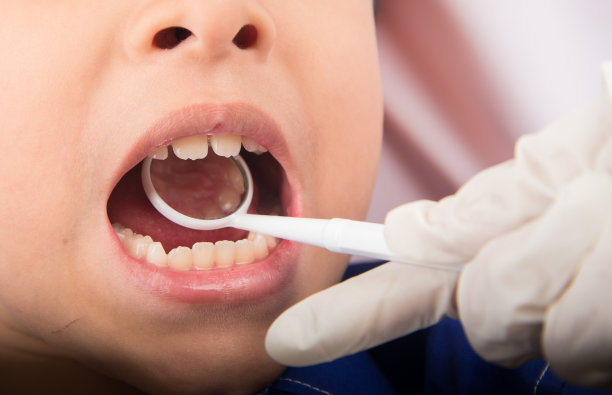Summary: Dental implantation is an advanced procedure aimed at restoring ones smile and functionality through artificial tooth roots. However, several essential precautions must be taken into account to ensure optimal results and success. This article delves into four critical aspects: understanding your health conditions, selecting a qualified dental professional, evaluating the right materials for implants, and adhering to post-operative care. Each of these factors significantly influences the stability of the implant and the overall healing process, ultimately leading to a successful outcome.
1. Understanding Your Health Conditions

Before undergoing dental implantation, it is crucial to have a thorough understanding of your medical history and current health conditions. Certain diseases and health issues may compromise the success of the procedure. For instance, individuals with uncontrolled diabetes may face complications that hinder the healing process post-surgery.
Another significant factor is the use of medications. Blood thinners, corticosteroids, and bisphosphonates can interfere with bone healing and implant integration. Therefore, it is essential to consult with your healthcare provider to evaluate your medications and health status before the procedure.
A comprehensive dental examination will also reveal any underlying issues, such as periodontal disease or infections that could affect the implants success. Being upfront and honest about your health will allow your dentist to devise a suitable plan tailored to your needs.
2. Selecting a Qualified Dental Professional
Choosing an experienced and qualified dental professional is arguably one of the most crucial steps leading up to dental implantation. Research potential dentists thoroughly by checking their credentials, experience, and reviews from previous patients. An experienced dentist will have a successful track record, providing confidence in their skills and methods.
Additionally, consider consulting dental implant specialists who have undergone additional training in the field. Specialists are often more familiar with the latest technologies and techniques, which can lead to improved success rates for the implantation.
Communication is also vital in this selection process. A good dentist should be willing to discuss all aspects of the procedure, address any concerns, and provide a well-outlined plan for treatment. This openness leads to a more comfortable patient experience, which can contribute to better outcomes.
3. Evaluating the Right Materials for Implants
The materials used for dental implants play a significant role in the procedures overall success. Most implants are made from titanium due to its excellent biocompatibility and strength. However, its essential to discuss alternative materials that may be more suitable for individual cases, especially for patients with allergies or sensitivities.
Additionally, some latest advancements in dental technology involve using zirconia implants as a metal-free option. While they may offer aesthetic benefits and less risk of metal allergies, they lack the extensive research supporting titaniums well-documented success.
Before deciding on the materials, its advisable to discuss the longevity, durability, and any possible complications associated with each material with your dentist. This step will help ensure that the chosen materials align with your expectations and desired outcomes.
4. Adhering to Post-operative Care
Proper post-operative care is essential for achieving optimal results after dental implantation. The healing process can be sensitive, and following your dentists guidelines will greatly impact overall success. First and foremost, patients should avoid strenuous activities, smoking, and consuming hard or chewy foods for at least a week after surgery to promote healing.
Regular follow-ups with your dental professional are also crucial during the healing phase. These appointments will allow dentists to monitor the integration process, ensuring that the implant bonds well with the jawbone and remains infection-free.
Additionally, maintaining excellent oral hygiene cannot be overstated. Brush and floss diligently, paying special attention to the implant site. If you notice any discomfort, swelling, or odd smells, contact your dentist immediately, as these could be signs of complications needing prompt attention.
Summary:
In conclusion, the success of dental implantation relies on several essential precautions that should not be overlooked. Understanding your health conditions, selecting a qualified professional, evaluating the right materials, and adhering to post-operative care forms a comprehensive framework that enhances the probability of a favorable outcome. Investing time and effort into these precautionary measures will ultimately lead to healthier teeth and a beautiful smile.
This article is compiled by Vickong Dental and the content is for reference only.
Vickong Dental
Vickong Dental is a large medical group established in Hong Kong in 2008 by professors from well-known medical universities in Guangdong and Hong Kong, as well as medical doctors from key national '985' universities (including Master's supervisors and senior professors). The chain of branches brings together expert dentists with PhDs and Master's degrees from Hong Kong and Mainland China, committed to providing high-quality dental treatment.
"Vickong Dental Practices the University Motto of 'Healing and Serving Society,' with a Stable Operation for Sixteen Years. It Has Been honored with Hong Kong Enterprise Leaders's Choice,' and is a Global Trusted Implant Center for the Nobel Implant System. Recommended by Hong Kong Metro Broadcast and Guangdong Television, it Serves Customers from Over Thirty Countries and Regions, Gaining the Trust and Favor of Citizens from the Guangdong-Hong Kong-Macau Greater Bay Area and Surrounding Cities.

Thousands of customers' unanimous praise
The most recognized and highly recommended dental service by customers in the Guangdong-Hong Kong-Macau Greater Bay Area
We Ensure You Receive Detailed Care and Attention Here
Hong Kong standards, Shenzhen prices, Your Trusted English-speaking dentists

Vickong Dental Medical-Grade Instrument Disinfection Process
Vickong Dental Medical-Grade Instrument Disinfection Process

Vickong Dental Chain: A Warm and Comfortable Environment for Treatment






Appointment Hours

Q&A
Why choose Vickong Dental?
Vickong Dental practices the university motto 「Medicine to Benefit Society」, with each branch bringing together highly qualified dentists with doctoral and master’s degrees from Hong Kong and the Mainland, and has maintained seventeen years of steady operation。Recipient of 「2024 Hong Kong Enterprise Leaders Brand」, 「2025 Hong Kong Enterprise Leaders Brand」, a Nobel Biocare Global Trusted Implant Center, and a brand recommended by Metro Radio Hong Kong and Guangdong TV。
To date, we have served customers from more than thirty countries and regions,earning exceptionally high word-of-mouth recognition and trusted recommendations from residents across the Guangdong-Hong Kong-Macao Greater Bay Area and surrounding cities
We have eight major branches in Zhuhai、Shenzhen,and a consultation and service assurance center in Hong Kong,so you can book a free consultation at any time for any questions,which is very reassuring.
If I do not accept the quotation after the CT scan, will I be charged??
No! As long as the actual treatment has not started, you will not be charged any fees.
Will there be any additional charges during the treatment process?
No, there won’t be any additional charges. Before treatment begins, we will clearly explain the treatment plan and its corresponding fees. Only after the patient agrees and signs the consent form will we proceed with the dental service.
Can I pay in Hong Kong dollars?
Yes. Vickong Dental accepts payment in Hong Kong dollars. The amount will be converted based on the exchange rate of the day, and the applicable rate will be clearly communicated to you in advance.
Can I reschedule my appointment at any time?
Yes. Please contact us via **WeChat** or **WhatsApp** as early as possible, providing your original appointment time and details, along with your preferred new date and time slot for rescheduling.













